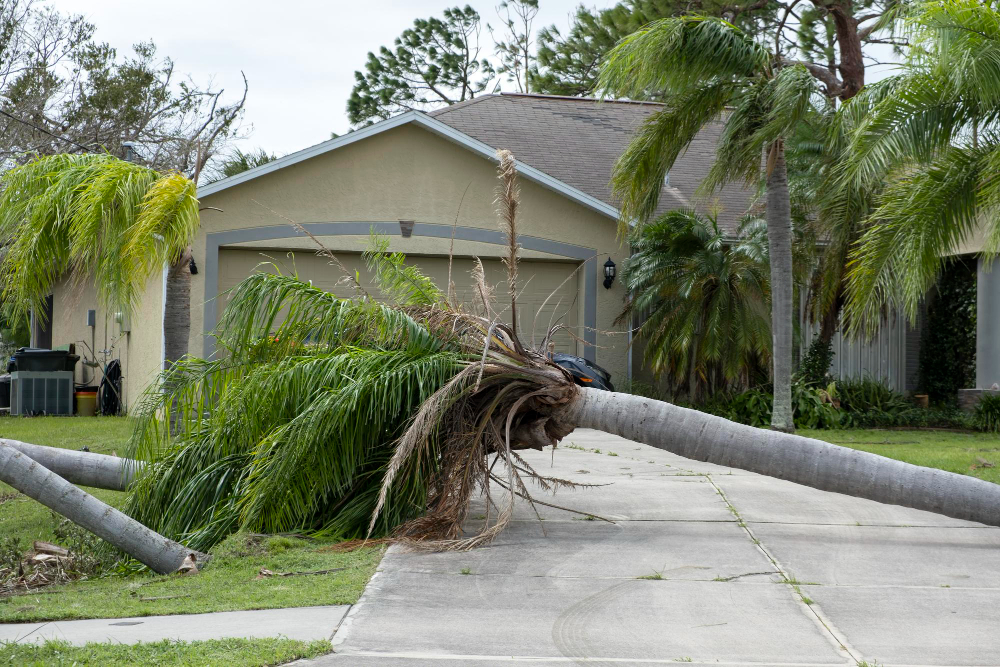What to Do if a Hurricane Damages Your Home

When a hurricane hits, the aftermath can leave homeowners feeling overwhelmed and unsure of where to start. Unfortunately, hurricanes are a fact of life in Florida, with Orlando residents no strangers to the chaos they can bring. If your home has been damaged by a hurricane, knowing the right steps to take is essential for your safety, financial recovery, and peace of mind. This guide provides a comprehensive approach to handling hurricane damage effectively, from safety precautions to filing insurance claims.
1. Ensure Safety First
The first priority after a hurricane is to ensure your safety and the safety of your loved ones. Before assessing any damage, make sure the storm has completely passed and it’s safe to go outside. Follow these steps to ensure safety:
- Avoid Downed Power Lines: Always assume that downed power lines are live. Keep a safe distance and report them to the authorities.
- Check for Gas Leaks: If you smell gas or hear a hissing noise, evacuate immediately and call the gas company.
- Inspect for Structural Damage: Look for signs of structural damage, such as cracks in the foundation or walls, and avoid entering the building if it seems unstable.
- Use Flashlights, Not Candles: In case of power outages, use battery-powered flashlights instead of candles to prevent fire hazards.
2. Document the Damage
Once it’s safe, document the damage to your property thoroughly. Detailed records will be crucial when filing an insurance claim. Here’s how to document effectively:
- Take Photos and Videos: Capture clear images and videos of the damage from different angles. Include the exterior, interior, and any damaged personal belongings.
- Make an Inventory List: Create a list of damaged items, including their approximate value and purchase date. This will help substantiate your claim.
- Keep All Receipts: Save receipts for any emergency repairs or expenses incurred during the evacuation. These may be reimbursable under your insurance policy.
3. Prevent Further Damage
Insurance policies often require homeowners to mitigate further damage to their property. This means taking temporary measures to prevent additional harm until permanent repairs can be made. Here are some steps you can take:
- Cover Broken Windows: Use plywood or plastic sheeting to cover broken windows and prevent rain from entering your home.
- Tarps for Roof Damage: If your roof is damaged, cover it with a tarp to shield it from rain and debris.
- Move Personal Belongings: Relocate any undamaged items to a safe area to prevent them from being damaged by ongoing leaks or exposure.
4. Contact Your Insurance Company
Promptly contact your insurance provider to report the damage and initiate the claims process. Here's what you need to know:
- Review Your Policy: Familiarize yourself with your insurance policy to understand your coverage limits, deductibles, and any exclusions.
- Provide Documentation: Send the documentation you collected, including photos, videos, and inventory lists, to your insurance company.
- Schedule an Adjuster Visit: Arrange for an adjuster to visit your home and assess the damage. Ensure you are present during the inspection to point out all areas of concern.
5. Consider Hiring a Public Insurance Claims Adjuster
Navigating the insurance claims process can be complex and stressful. Hiring a public insurance claims adjuster can be highly beneficial:
- Expert Representation: A public adjuster works on your behalf to negotiate with the insurance company and ensure you receive a fair settlement.
- Local Knowledge: If you’re looking for a public insurance claims adjuster in Orlando, FL, contact Ultra Property Damage today for a free consultation. Their expertise in handling Florida-specific claims can be invaluable.
- Maximize Your Claim: Public adjusters can help identify all covered damages and maximize your insurance payout, providing peace of mind during a difficult time.
6. Plan for Repairs
Once you’ve received your insurance settlement, it’s time to plan for repairs. Here’s how to proceed:
- Get Estimates: Obtain multiple estimates from licensed contractors to ensure you’re getting a fair price for the work needed.
- Prioritize Repairs: Address critical structural damage and safety hazards first, such as roof repairs, broken windows, and electrical issues.
- Consider Upgrades: If possible, consider making improvements to increase your home’s resilience against future storms, such as hurricane shutters or reinforced roofing materials.
7. Stay Informed and Prepared
After experiencing hurricane damage, it’s important to stay informed and prepared for future events. Here are some tips:
- Build an Emergency Kit: Prepare an emergency kit with essentials like water, non-perishable food, flashlights, batteries, and a first-aid kit.
- Develop an Evacuation Plan: Create a family evacuation plan that includes meeting points and contact information for local emergency services.
- Stay Updated on Weather Alerts: Monitor local news and weather alerts to stay informed about potential hurricanes and severe weather conditions.
Conclusion
Dealing with hurricane damage can be daunting, but taking the right steps can make the process more manageable. By prioritizing safety, documenting and mitigating damage, navigating the insurance claims process, and planning for repairs, you can recover and rebuild effectively.
If you need assistance with your insurance claim, consider reaching out to a reputable public insurance claims adjuster in Orlando, FL, like Ultra Property Damage. They can provide expert guidance and representation to help you secure the compensation you deserve.
Remember, preparedness is key. Stay informed, build a resilient home, and have a plan in place to safeguard your property and loved ones against future storms.
For a free consultation with a public insurance claims adjuster, contact Ultra Property Damage today and take the first step toward recovery.
 (888) 979-7969
(888) 979-7969
 (888) 979-7969
(888) 979-7969
